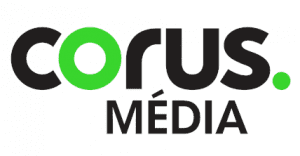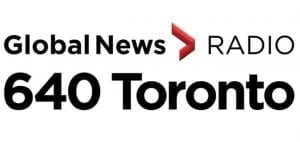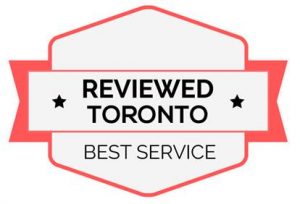
Tax free death benefit Expert
Get Access To Our On-Demand Training To Learn More About Life Insurance Policies & Your Tax Free Death Benefit.
We all want our families to enjoy peace of mind when we are no longer with them. By purchasing life insurance, you’ll be one step closer to attaining this. You can take a policy that will give your beneficiaries the cash they need to cater to your final expenses, settle the debts that you might have left behind or meet their day-to-day needs.
You might wonder if your beneficiaries will have taxes to pay on any amount they might receive from the life insurance. Worry, no more, this is what happens when you are no longer there to watch over them.


In Canada, if you have a policy against your life, the proceeds will not be subjected to taxes. The Canadian Revenue Agency (CRA) does not treat the amount received by your beneficiaries as taxable income.
There are no death taxes owed by your beneficiaries or estate inheritance taxes; the estate pays the government any unpaid taxes. Any taxes due from your estate is paid before your estate is distributed to the sums you would want your beneficiaries to receive.
Also, have an estate executioner appointed to carry out all the legalities. The executioner should settle your estate and get a clearance certificate from the government, which will confirm that there are no pending income taxes. This should be done before the estate is distributed, and in doing so, they will protect your beneficiaries from being held liable to any amount you might owe.
A named beneficiary of a life insurance policy doesn’t pay taxes when receiving the death benefit proceeds. However, while the policy is in force, and the life insured is alive, there can be taxable events triggered (not including term life insurance). That is why we recommend working with a professional who is *thoroughly* familiar with how to utilize a policy or system of policies without triggering taxable events, during life and after death. If you do not elect to have your named beneficiaries paid immediately after your death, and your proceeds are held for a given period of time by the life insurance company, your named beneficiaries will pay taxes on any interest earned. The good news is the total death benefit is still payable with no taxes due. Now this is rare as most often, death benefit claims are adjudicated and paid fairly quickly. There are circumstances in the estate planning process where the policy owner chooses to have the death benefit proceeds purchase an “annuity” in which the beneficiary receives a stable stream of income, often paid monthly. This is a scenario where the tax free death benefit proceeds are now producing ongoing income and interest earnings would now occur. When your heirs inherit your estate, they might have estate taxes to pay after death benefits are paid to the estate. However this has to do with your estate overall and not specific to the tax free death benefit received.
Dealing with an Estate can be stressful or relaxing. The difference between you being stressed or staying relaxed is all in the planning. The reality is that we all must contend with it at some point. That is why good estate planning is key. It is critical to have a named beneficiary on a Life insurance policy to make sure the proceeds are received tax free and bypass probate. If you do not have a named beneficiary or a contingent person then the death benefit proceeds are automatically deemed to be received by your estate. This is not ideal. Let's take a look at what can happen if this occurs.
The first $10,000 is always exempted from tax, and the remaining death benefit proceeds are reported on tax returns by the estate’s beneficiaries. If, for example, the total amount is $40,000, your estate’s beneficiary, which is not the same as a beneficiary declared with a life insurance policy, will report $30,000 to their tax returns.
Again to be clear, this would be reported by whomever is inheriting your estate if you, as the deceased, have not named any specific beneficiary on the life insurance policy. Where there are several beneficiaries that form part of the estate itself, the exempted amount should be shared according to their allocated percentages. For instance, if four recipients are awarded each $10,000 from a lump sum of $ 40,000, each beneficiary will claim a tax exemption of $2,500 (1/4 of $10,000, the exempted amount).
In Summary, always make sure that you have a named beneficiary and consider naming a contingent beneficiary as well on all of your life insurance contracts. Make sure to periodically review this from time to time with a Life Insurance Expert who is clearly familiar with your goals, wishes and objectives.

Get Access To Our On-Demand Training To Learn More About Life Insurance Policies & Your Tax Free Death Benefit.









© 2024 Ascendant Financial Inc. All rights reserved.
The supporting material, audio and video recordings and all information related to Introduction to Becoming Your Own Banker, The Infinite Banking Concept (IBC) posted on www.ascendantfinancial.ca and all other Ascendant Financial Inc. websites are designed to educate and provide general information regarding The Infinite Banking Concept (IBC) and all other subject matter covered. It is marketed and distributed with the understanding that the authors and the publishers are not engaged in rendering legal, financial, or other professional advice. It is also understood that laws and practices may vary from province to province and are subject to change. All illustrations provided in these materials are for educational purposes only and individual results will vary. Each illustration provided is unique to that individual and your personal results may vary. Because each factual situation is different, specific advice should be tailored to each individual’s particular circumstances. For this reason, the reader is advised to consult with qualified licensed professionals of their choosing, regarding that individual’s specific situation.
The authors have taken reasonable precautions in the preparation of all materials and believe the facts presented are accurate as of the date it was written. However, neither the author nor the publishers assume any responsibility for any errors or omissions. The authors and publisher specifically disclaim any liability resulting from the use or application of the information contained in all materials, and the information is neither intended nor should be relied upon as legal, financial or any other advice related to individual situations.
Family Banking System (FBS)™ is a trademark of Ascendant Financial Inc. © Ascendant Financial Inc., 2024. All rights reserved. The phrase “Live the Lifestyle, Love the Process, Infinite Banking” is a registered copyright (Registration No. 1209863) with the Canadian Intellectual Property Office. Unauthorized use, reproduction, distribution, or copying of this phrase, in whole or in part, without express written permission from Ascendant Financial Inc. is strictly prohibited. This copyright is protected under Canadian intellectual property laws and regulations. Any unauthorized use is subject to legal action and enforcement under Canadian law. For inquiries or requests for permission to use this copyright, please contact Ascendant Financial Inc.
The Infinite Banking Concept® is a registered trademark of Infinite Banking Concepts, LLC. Ascendant Financial is independent of and is not affiliated with, sponsored by, or endorsed by Infinite Banking Concepts, LLC.”
This content is intended for Canadian residents of BC, AB, SK, MB, ON, NB, NS, NU, YT, PEI & NFLD only.